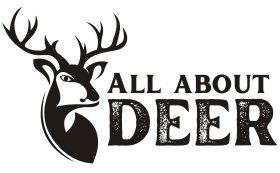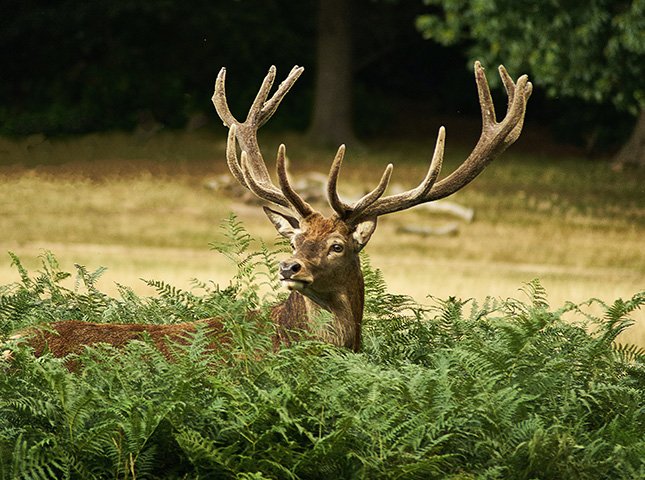Do deer eat bread? Let’s find out! Deer are herbivores, meaning they mostly graze on vegetation. But they may get curious about bread if it’s in their area. They could be tempted by the smell and look of it.
However, bread isn’t very nutritious and could be bad for their health. Too much bread could disturb their digestion.
Tip: If you want to help deer, give them fruits or veggies instead of bread. They’ll be better off!
Table of Contents
Can deer eat bread?
Can deer eat bread? Yes, but it’s not a good choice. Here’s why:
- Bread doesn’t have the nutrients deer need.
- Only offer bread if there’s no other food.
- The carbohydrates in bread can hurt their tummies.
- Feeding them bread can lead to health problems.
- Choose natural foods like fruits, veggies, or grains.
- Only give them food sparingly and with caution.
Remember, feeding deer with bread should be a last resort. Wild animals need specific foods to stay healthy in their habitats.
The potential risks of feeding bread to deer
Feeding bread to deer might carry potential risks, like health issues and a disruption of their natural diet. Thus, it’s essential to be aware of the risks before thinking of feeding them bread.
Such risks include:
- Nutritional Imbalance: Bread lacks proteins, vitamins, and minerals which deer need. This can lead to a deficiency.
- Digestive Problems: Deer have sensitive digestive systems, not built for the carbs in bread. This can cause bloating, indigestion, and blockages.
- Obesity: Bread has high calories and low fiber, which can make deer overweight. This can impair their mobility and health.
- Dependency: Regular feeding of bread may cause deer to depend on this unnatural food source, disrupting their natural foraging habits.
- Disease Transmission: When people feed bread in public areas, it attracts a lot of deer, increasing the risk of disease transmission.
- Increased Predation Risk: Concentrating deer populations around feeding sites increases their risk of becoming prey for predators like coyotes or dogs.
Instead, hay and specialized wildlife feed are available that provide proper nutrition without the risks. In fact, the National Park Service has linked human food (including bread) to liver abscesses and other health problems in deer populations.
Alternatives to feeding bread to deer
Do not be tempted to feed bread to deer! It can cause harm. Alternatives are healthier and better. Such as:
- Fruits and vegetables – Deer like plants. Offer apples, carrots or leafy greens.
- Deer-friendly vegetation – Plant native shrubs and trees. This gives them food and helps the ecosystem.
- Mineral licks – Create areas for deer to get minerals. This helps them stay healthy.
- High-quality hay or forage – Offer hay in winter. This helps the deer population.
Bread can cause digestive problems and malnutrition. It lacks nutrients. Implement options that mimic their natural diet.
The National Park Service discovered that feeding bread to wildlife causes dependency and changes their behavior.
Conclusion
Deer usually don’t munch on bread, as it isn’t part of their natural diet. Although, there are certain situations where they may consume it.
- Maybe by mistake: If bread is left out, deer may eat it while looking for their normal food.
- Survival instinct: In critical hunger or lack of vegetation, deer may use bread as a temporary food source.
- Interaction with humans: If bread is offered to them, deer that are already used to human presence might take a bite.
- Risks and worries: Small amounts of bread won’t hurt deer, but it isn’t a balanced or healthy choice. Feeding them bread can cause nutritional issues and problems with digestion.
- Alternative feeding: To guarantee the wellness of deer, it’s suggested to give them hay or special deer feed if needed.
- Environmental impact: Leaving large amounts of bread for deer can attract other wildlife and potentially make ecosystems unbalanced due to overfeeding.
It’s important to understand that bread isn’t part of deer’s diet, even if they occasionally eat it.
Therefore, to keep wildlife safe, it’s best to not feed them bread. Create a space where they can find natural food. This way, we can assure the wellbeing of both deer and their habitats. Let’s take responsibility and protect these amazing creatures.
Frequently Asked Questions
FAQs about Deer Eating Bread
1. Do deer eat bread?
Yes, deer are known to eat bread in certain situations. However, it is not a part of their natural diet and should not be provided as a primary food source.
2. Is bread healthy for deer?
No, bread lacks the essential nutrients and vitamins that deer need to thrive. Feeding them bread as a regular diet can cause nutritional deficiencies and other health problems.
3. Can bread harm deer?
Feeding excessive amounts of bread to deer can be harmful to their digestive system. It can lead to bloating, stomach issues, and other digestive disorders.
4. If I accidentally fed bread to a deer, what should I do?
If you mistakenly fed bread to a deer, monitor its behavior and health. If any signs of distress or digestive problems appear, seek professional help from a wildlife expert or veterinarian.
5. What are some suitable alternatives to feeding deer bread?
Healthy alternatives to bread for deer include fruits, vegetables, nuts, and grains that are part of their natural diet. It is better to mimic their natural food choices for their overall well-being.
6. Is it legal to feed deer bread?
Feeding deer bread is generally not illegal, but it is highly discouraged as it is not a nutritious option. It is always recommended to follow guidelines provided by wildlife conservation agencies and experts in your region.


